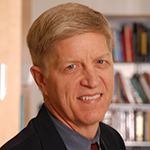Mention the Thurston Arthritis Research Center at the University of North Carolina (UNC) at Chapel Hill, and many rheumatologists immediately (and correctly) identify the center with the esteemed Johnston County Osteoarthritis Project (JoCoOA). The project began as a master’s thesis for Joanne M. Jordan, MD, MPH, who is now the Joseph P. Archie Jr. Eminent Professor of Medicine, director, Thurston Arthritis Research Center, and chief, Division of Rheumatology, Allergy and Immunology at UNC. Since its inception in 1990, JoCoOA’s 20-plus-year data sets have yielded important information on the multiple potential causes of osteoarthritis, disability and pain in African American and Caucasian residents of that rural North Carolina county.

Although the JoCoOA comprises “a big part of what we do here, our program really covers the gamut of arthritis and allergy/immunology research,” says Dr. Jordan. “We do osteoarthritis, but we also work on rheumatoid arthritis, as well as other inflammatory arthridites, lupus, Sjögren’s and other autoimmune conditions.” Thurston’s basic science, clinical and epidemiological research endeavors are also “highly collaborative within the Center and across the University, nation and globe,” she notes. For example, “to make the JoCoOA business model work,” it was necessary to collaborate with genetics and molecular biology researchers to identify biomarkers that indicate predisposition for arthritis; with other epidemiologists to examine socioeconomic and other risk factor contributors; and with social scientists and psychologists to refine best interventions and improve outcomes for people living with the disease.
“UNC is a public institution. Thurston is the arthritis research center for the people of North Carolina, and we take that mission of service very seriously,” says Dr. Jordan. The state motto—Esse quam videri, “to be, rather than to seem” (Cicero, On Friendship)—provides a guiding principle for their work. “We like to define our approach to our work as ‘the Carolina way,’ which is excellence with a heart,” she adds.
Collaborative Approach

Another defining feature of the program, says Teresa Tarrant, MD, assistant professor of medicine, is that all faculty members follow patients in the clinic. “The idea of always maintaining a connectedness to patient care to inform the sciences is really emphasized at UNC.” In her clinic, Dr. Tarrant, who is double-boarded in rheumatology and allergy/immunology, addresses the overlap between allergy, immunology and rheumatology. She sees patients who, in addition to their multiple autoimmune diseases, are also “strikingly immune deficient” and unable to protect themselves from infection. The dual disciplinary approach, she notes, has been helpful in the diagnosis and management of those patients.
The overarching theme of Dr. Tarrant’s laboratory work is to “understand how immune cells migrate abnormally in autoimmune disease, in inflammation and immune deficiency.” The most recent investigations of the Tarrant lab explore chemokine receptor signaling mechanisms important in rheumatoid arthritis. Many of these studies have also been instructive in how cells move abnormally in immune deficiency and in cancer metastasis.
In a collaborative UNC initiative, funded by the NIH, Dr. Tarrant’s group teamed with chemists to explore novel imaging in inflammation. The team used novel nano materials designed by the Department of Chemistry, combined with labeling techniques, to allow imaging, with MRI or fluorescence, of monocytes as they moved in autoimmune arthritis. The idea behind these explorations is that the ability to detect subtle levels of inflammation not detectable on X-ray or by examination could then possibly lead to new strategies for intercepting inflammatory pathways and resulting structural damage.
Dr. Tarrant is also currently exploring a partnership with the Department of Ophthalmology and the School of Dentistry at UNC to devise a multidisciplinary setting for managing and treating patients with Sjögren’s disease.
Engagement with Community

Leigh F. Callahan, PhD, is the Mary Link Briggs Distinguished Professor of Medicine at the UNC TARC. In May 2014, Thurston became the new home of the Osteoarthritis Action Alliance (OAAA), and Dr. Callahan its new director. OAAA is a national coalition of organizations mobilized by the Arthritis Foundation and the Centers for Disease Control and Prevention. The affiliation “fits right in with the focus of our multipurpose clinical research center, mitigating the impact of arthritis on public health,” says Dr. Callahan.

Her 25 years of epidemiological work with arthritis interventions has focused on robust partnerships with communities. For example, in designing and establishing the evidence base of the community-based, six-week-long Arthritis Foundation’s Walk with Ease program, with grant support from the CDC, Dr. Callahan and her colleagues began work with 465 individuals in many counties across the state. A subanalysis of African Americans within that study addressing barriers to self-management of arthritis was just published in the CDC’s Preventing Chronic Disease journal.1
“The university encourages the community to partner, so people are receptive and eager to be part of our studies and research,” says Dr. Callahan. Through contacts with churches, the Mexican consulate, community centers and the UNC Center for Latino Health (CELAH) clinics, the Center has also recruited 285 Hispanic individuals to test the adapted Walk with Ease program (Camine con Gusto) so that it’s culturally specific for the state and nation’s growing Hispanic population. In another collaboration, they are partnering with oncologists to determine if the program will help breast cancer survivors with joint pain caused by taking aromatase inhibitors become more physically active.
“Here at UNC, our osteoarthritis research starts at the very basic level, from cells and mouse models to clinical research and then out into the community,” says Richard F. Loeser Jr., MD, Herman and Louise Smith Distinguished Professor, Division of Rheumatology, Allergy and Immunology, director of basic and translational research. He notes that division team meetings are also highly collaborative, gathering basic science and clinical researchers to solicit input on proposed projects. The objective is to make projects strong and relevant to promoting better care for patients, he says. “It’s a great way to work together.”
As an example of that focus on translational research, Dr. Loeser’s laboratory has recently begun to apply basic science techniques to studying samples obtained from JoCoOA study participants. He and collaborators at the Research Triangle Institute will be using metabolomics to explore novel biomarkers for osteoarthritis progression.
Philanthropy, Training & Camaraderie

The center’s inception traces to the philanthropy of North Carolinian D. Jones (Doc) Thurston Jr. (1908–1993), a graduate of UNC who established a trucking business, Thurston Motor Lines Inc., and was a patient of John Winfield, MD, former chief of the division and founding director of the Thurston Arthritis Research Center. An ongoing Board of Directors comprising community lay and professional members continues philanthropic fundraising to support the Center. Other major funding comes from the Arthritis Foundation, the CDC and the NIH.
One of the strengths of the program, notes Saira Z. Sheikh, MD, assistant professor of medicine in the division, is that the division combines rheumatology and allergy/immunology. This was one of the attractions for her as a post-doc fellow, because she wanted to follow her interests in both fields. She is dual-trained and double-boarded in both areas and was invited to join the faculty after completing her fellowship. Currently, she co-directs the UNC Rheumatology Lupus Clinic.

Dr. Sheikh lauds the division’s robust clinical trials program offering novel therapeutic options to patients with all types of rheumatic disease. For her, the approachability and camaraderie in the division facilitated her growth as a clinician and researcher. “Having the opportunity to train at a place like this, you learn not only the science but also the art of practicing different clinical approaches,” she says.
Indeed, approachability and collaboration foster ongoing excellence in the division’s many domains, said those we interviewed. Dr. Callahan sums up the atmosphere in this way: “I work with fantastic individuals, and I truly love where I work—that’s a wonderful thing to be able to say.”

